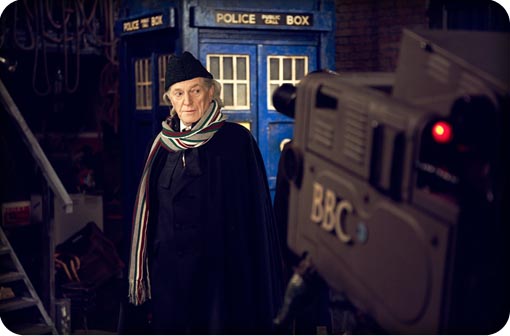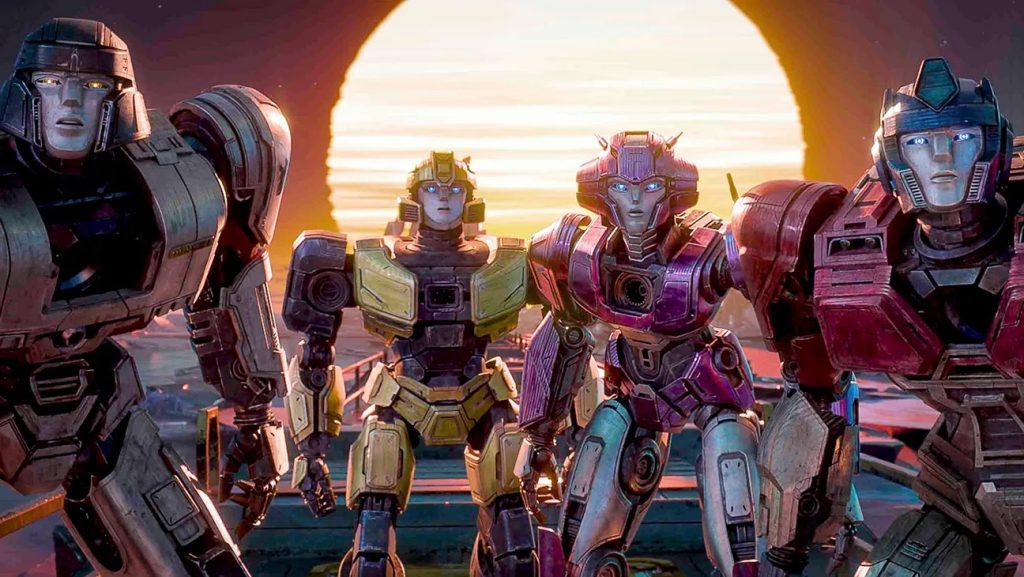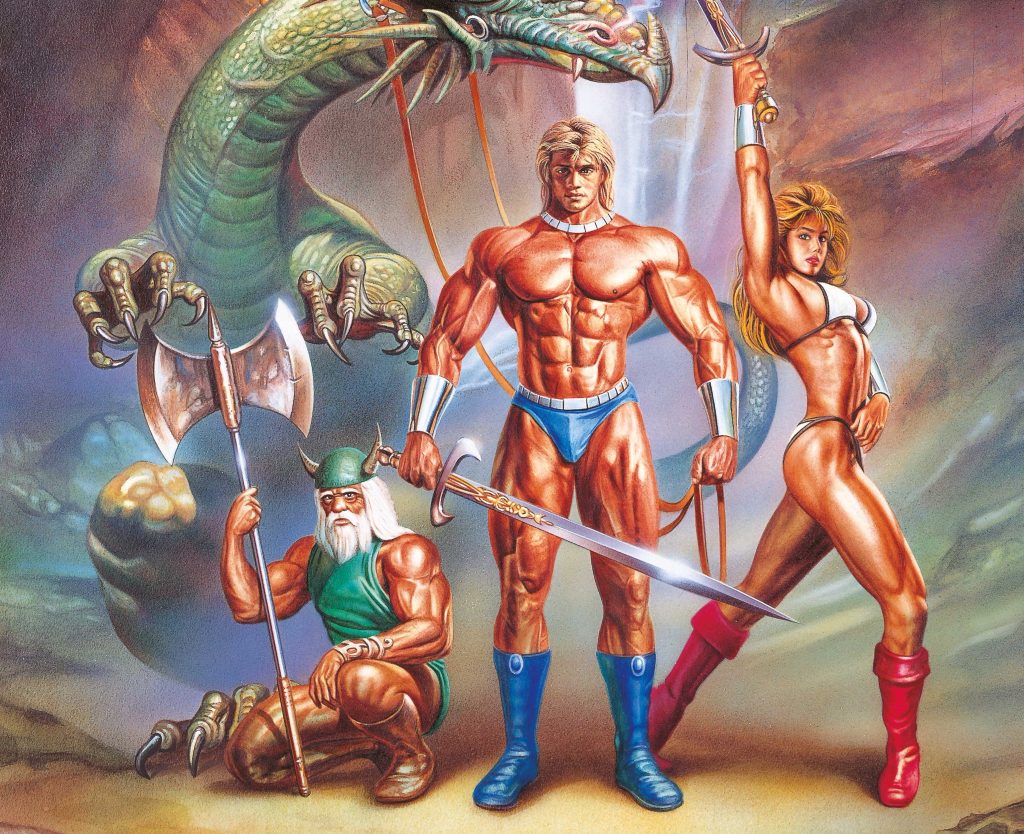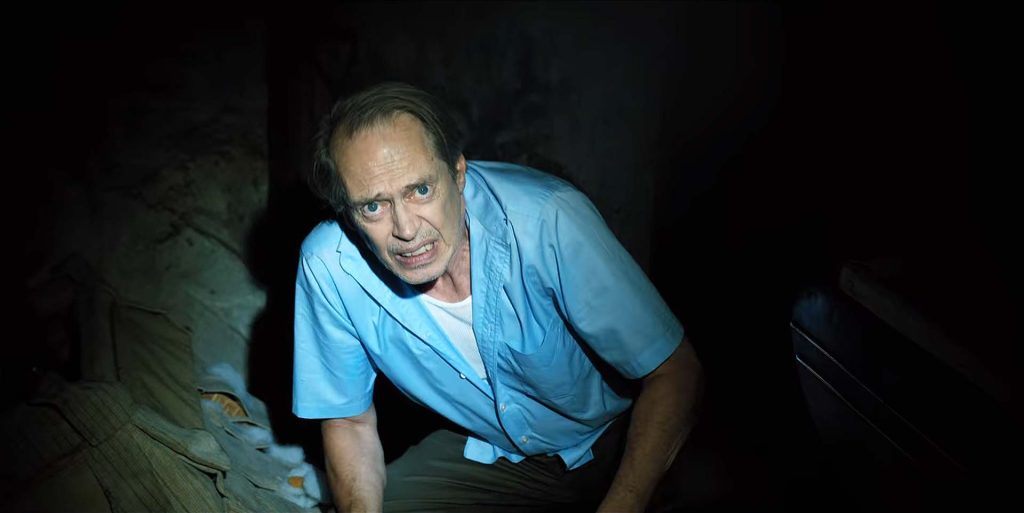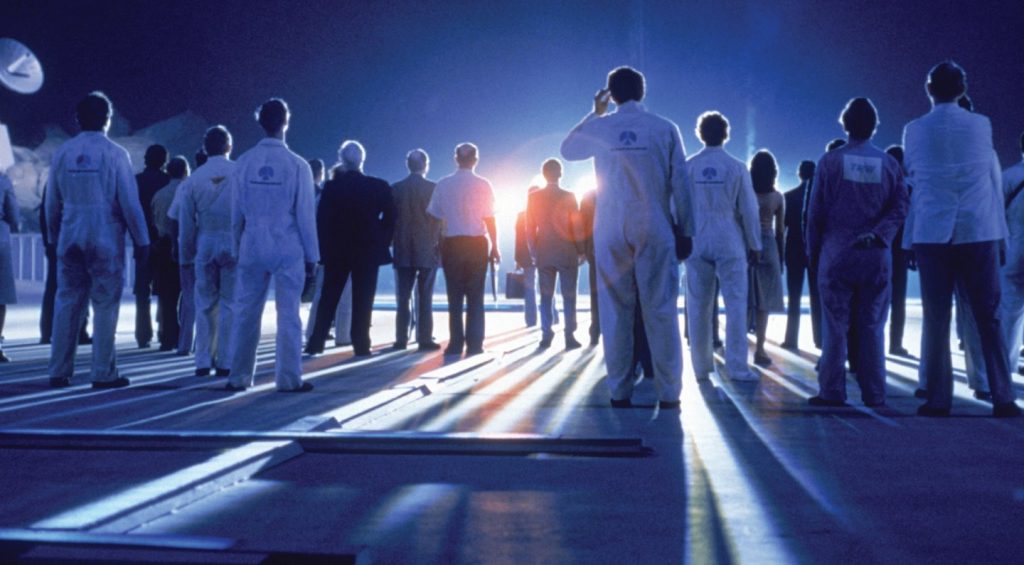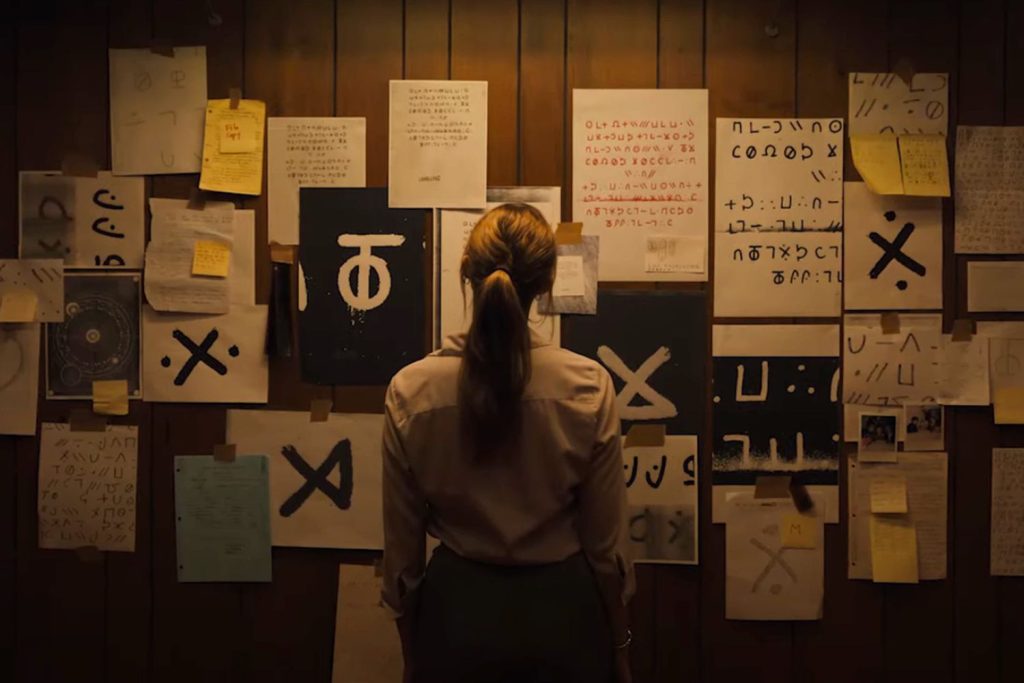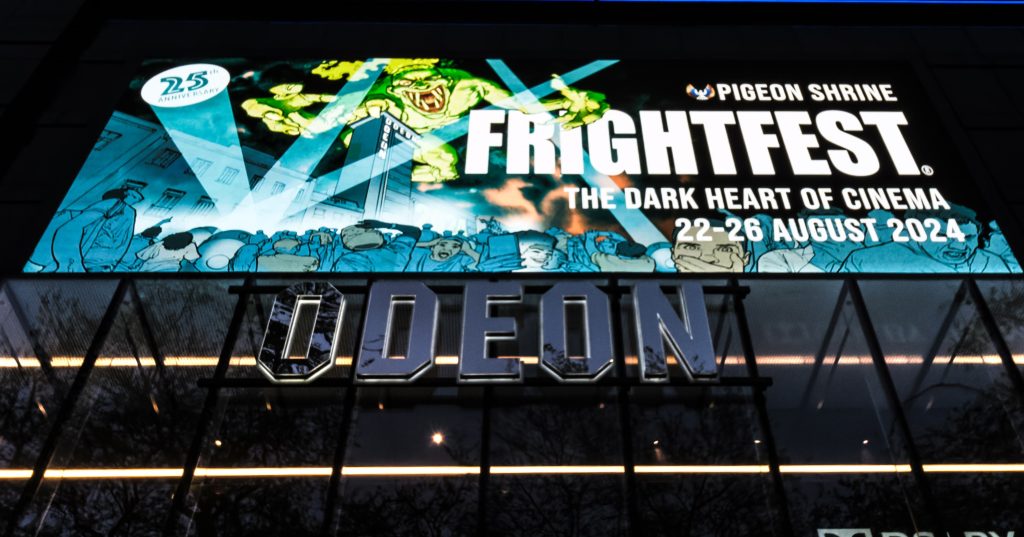
There’s a scene in The Romans, the 1965 First Doctor story (and one of the few, it seems, that doesn’t get revisited herein) in which William Hartnell’s original Doctor pulls the wool over a watching audience’s eyes in a manner which would have made the Emperor and his new clothes proud. And there’s a sense in which Doctor Who fandom was almost willing Mark Gatiss’ dramatisation of the origins of the series to succeed, so beloved are they of him. He’s the underperforming fan writer who has, weirdly, been taken to fandom’s heart, in spite of a string of less-than-successful television episodes. You would be forgiven for thinking that the author of Victory of the Daleks and The Idiot’s Lantern might be running short of chances, but nothing could be further from the truth; when Gatiss was announced as the author behind An Adventure in Space and Time, fandom collectively breathed a sigh of relief that it wasn’t someone else.
It seems Mark Gatiss originally touted the idea of a dramatised “origins of Doctor Who” story to the BBC ten years ago, and perhaps several times since. There wasn’t a chance of the corporation turning down such an opportunity for the show’s fiftieth anniversary though, particularly given how successful Doctor Who currently is. Would Gatiss be able to overcome the obstacles that dogged those earlier, less-than-stellar, efforts, and reward fandom with the anniversary present they really wanted?
The problem is that Gatiss learned his televisual craft on The League of Gentlemen, the sketch-based theatrical show that became something of a phenomenon on BBC2. There’s a massive difference between writing sketches and grotesques, and being able to write stories involving real human beings, and it’s a change that Gatiss has never quite been able to make. Victory of the Daleks was a perfect example; it’s only the skill of Bill Paterson that helps you feel anything at all during the emotional resolution to Bracewell’s story, and even Ian McNiece can’t stop Churchill from descending into caricature. There’s a brilliant example in The Idiot’s Lantern of how to construct a scene in a sketch comedy (and how not to do it in drama); the Tenth Doctor is taken into custody by DI Bishop, and during the course of their conversation, gradually turns the tables until Bishop is beholden to him. It’s the kind of thing you might do across the course of an entire story or episode, but to do it in a single scene smacks of glibness; condensing character moments is one thing, shrinking them down until they fit into single scenes is quite another. You can pull it off if your drama is metaphorical or heightened in some way, but in something that has ambitions towards “legitimacy”, such shortcuts can only serve to undermine the authenticity of the emotional drama.
And there’s the rub: An Adventure in Space and Time attempts to tell three years’ worth of story in a single, ninety-minute drama. And it almost, almost succeeds. But Mark Gatiss, despite making concessions to reality by abbreviating or excising altogether the contributions of several key members of the early days of Doctor Who, doesn’t seem quite sure whose story he wants to tell, and isn’t confident enough to tell that story without resorting to his usual bag of aforementioned tricks. He ends up flubbing it.
The first half of the play is the story of how Doctor Who came together in the first place, and this would probably have made a satisfying drama in itself. Sydney Newman’s appointment of Verity Lambert was revolutionary back in the early 1960s BBC, and Lambert’s search for her Doctor, and ultimate casting of William Hartnell – a daring move – should have been a story worth telling in its own right. We never quite get a sense of how revolutionary Lambert’s appointment really was, though; there’s plenty of lip-service paid to the notion of the noteworthiness of appointing a woman (especially one so young) into such a senior position, but it’s hard to really feel it. Gatiss relies too much on showing such developments in single scenes, where the pay-off is too easy and too heavily signposted to engender any real sense of anticipation. The short monologue in Newman’s office where we learn of Doctor Who’s success in the wake of the Daleks’ introduction is a perfect example: it takes mere seconds for the drama to play out, and any tension that might have been generated isn’t afforded the space it needs to build. Lambert’s response is cute, but perhaps a bit too cute. It all feels like characters in a story responding to the needs of the story, rather than people reacting to and feeling the events and emotions of real life. There are also some strange editing decisions early on, which move things forward quickly and dynamically, but which leave important advancements in the tale feeling rudimentary or, worse, lacking in significance. The theme music and titles sequence appear to come out of nowhere, and Hartnell feels too much like a shoo-in for the part. Whereas the casting of the lead actor should ideally have been centre-stage – particularly given how the second half of An Adventure in Space and Time unfolds. By trying to tell too many stories at the same time, Gatiss can’t decide where to focus, and the result – although very watchable – can seem cursory when it ought to have been involving.
There are also times when, in spite of his attempted professionalism in the face of being allowed to tell the story he always wanted, Mark Gatiss can’t help but allow his fan brain to rule his pen. Sydney Newman’s “piss and vinegar” description of Verity Lambert (something which An Adventure in Space and Time never quite convinces us of) might be an ideal shorthand for the kind of character it took to get Doctor Who off the ground, but we don’t need to see it being bandied around like a catch-phrase. And the early sequence in which an actor dressed up as a Cyberman acts as a window into the emotional drama is one of many scenes where that emotional centre is undermined by the need for a punchline and a fan reference. There are a couple of scenes earlier on where the tension of getting the first episode recorded is punctured by a comedy caveman who seems to have been flown in from another production altogether. There’s a place for humour, but it has to be a natural part of the story, and it has to feel real, not something thrown in haphazardly because the author’s a comedian. Instances like these only help to take you out of the moment, rather than punctuating the drama with a little light relief. They remind you that what you’re watching is television, rather than letting you get wrapped up in the recreation.
Worse still is the decision to quote the Tenth Doctor’s final words when Hartnell finds himself let go; there’s no possibility that Gatiss wrote this coincidentally rather than as a deliberate allusion, but by choosing to do so what ought to have been the most moving scene in the story is reduced to a moment of head scratching. Had Hartnell’s breakdown been accomplished more naturally, it would have been heartbreaking; as it is, it feels like the writer telling you to feel heartbroken. Which isn’t the same thing at all. Similarly, when Hartnell subsequently sees his future self in the TARDIS just as he’s about to shoot his last scenes, a moment that might have been haunting and prescient is bungled. An Adventure in Space and Time seems to want to leave us with a broken-hearted leading man, but by allowing Hartnell a glimpse of what the show might eventually become, we’re left in a kind of limbo; it might have been better either to show Hartnell enjoying the series’ continued success after his departure, the message being that this was all because of him (a short coda from the time of The Three Doctors, perhaps), or to leave the character at the point of departure, not knowing what the future might bring. The apparition of the future is more half-measure than haunting premonition; it’s a beautiful moment on the screen but both emotionally and intellectually it’s half-cooked, a conundrum rather than a consolation. As with the comedy, there’s a place for ambiguity, but not when parachuted in. Again, it only serves to jolt you out of the drama.
Fortunately, the towering central performance from David Bradley as Hartnell pretty much saves the day. He doesn’t quite get all of Hartnell’s mannerisms, but it would only be an impersonation rather than an interpretation if he did. What he does instead, in spite of the shortcomings of the script, is portray an actor who believably takes on a role he’s unsuited to, and becomes a changed man as a result. We very rarely see the changes happening on screen – often we see the result of the changes rather than the transformation (the scene in which Carole Ann Ford leaves being a good example; prior to what ought to have been a touching moment, we had last seen the two actors at loggerheads, belying the connection the two are ostensibly supposed to have gradually made) – but it’s testament to Bradley that they at least feel real. Brian Cox and Jeff Rawle are excellent back-up as Sydney Newman and Mervyn Pinfield, helping to ground the story even if they’re both written rather superficially, but neither Jessica Raine nor Sacha Dhawan (as Verity Lambert and director Waris Hussein) quite convince that they’re made of the kind of stuff that would have got Doctor Who made back in 1963. They have their moments, but the characters are portrayed too sympathetically to genuinely feel like they’d have been capable of being hard-headed enough to get the job done. Lambert’s instances of “piss and vinegar” characterisation feel too isolated, too much like they’ve been imported from another performance.
Where An Adventure in Space and Time really, really succeeds is in its fan service. It’s a beautiful looking production, and although we ought to have expected that, the fact that this is the BBC reproducing its own history takes the period recreation to a whole new level. Television Centre has never looked so startling – and out of date – and the studios are demonstrably as cramped and unforgiving as we’d always heard. The various monster costumes we see are shown in sharp relief; this really wasn’t a production with any budget to speak of, and it should never have become the success that it did. But there are two elements that display the kind of genius that Doctor Who inspired (and continues to inspire), and both are filmed lovingly – almost sexually, even. It’s a shame Mark Gatiss chooses to portray Peter Brachacki designing the central TARDIS set in quite so off-hand a manner, as it betrays the genius of the design (and Ray Cusick, designer of the Daleks, is missing from the story altogether), but there’s no disguising the emphasis the story places on their existence. Director Terry McDonough’s camerawork and editing turn each into a character in its own right, competing with David Bradley for star performance, and the only niggle is that while the Daleks don’t arrive until halfway through the production (the one example of audience anticipation that the script gets right), the console room is a constant presence throughout. We see it “revealed” two or three times, but we never get to feel the expectation of waiting to see it. It is a damn fine facsimile, though.
It’s hard to judge whether An Adventure in Space and Time is truly successful. As a window onto the past it’s never quite thorough enough to allow you to feel you’ve really met the people or experienced the production of the series, but at the same time, as a snapshot of what making Doctor Who was once like, it’s an entertaining and informative counterpoint to Doctor Who Confidential. And for every mishandled scene or sequence, there’s an unforgettable image – like the cigarette-smoking Cyberman, or the Dalek getting a ticking off. It perhaps might have worked better concentrating its resources onto one character or the other – as a two-hander between Verity Lambert and William Hartnell, there just aren’t enough parallels or contradictions to make for a completely fulfilling narrative – or maybe concluding its account with the introduction of the Daleks.
Having said all that, in spite of the numerous problems, An Adventure in Space and Time is an utterly compelling experience, a drama that will no doubt become legendary in Doctor Who fan circles. If it didn’t quite accomplish everything it set out to achieve, then that’s probably enough. It’s the anniversary present that Doctor Who fans wanted, after all. And that’s an achievement in itself.


